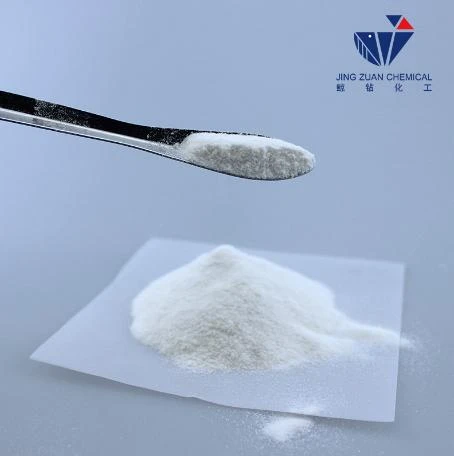
May . 07, 2025 19:39 Back to list
High-Purity Hydroxyethyl Cellulose (HPMC) for Sale Bulk Supply
- Overview of Hydroxyethyl Cellulose (HEC) and Hydroxypropyl Methylcellulose (HPMC) in Industrial Applications
- Technical Advantages and Performance Metrics of Hydroxyethyl Cellulose
- Competitive Analysis: Leading Manufacturers in the HEC and HPMC Market
- Custom Solutions for Diverse Industrial Requirements
- Case Studies: Real-World Applications of Hydroxyethyl Cellulose
- Quality Standards and Compliance in HEC Production
- Why Choose Hydroxyethyl Cellulose for Your Next Project

(hydroxyethyl cellulose for sale)
Hydroxyethyl Cellulose for Sale: A Versatile Solution Across Industries
Hydroxyethyl cellulose (HEC) and hydroxypropyl methylcellulose (HPMC) are cellulose ethers widely used in construction, pharmaceuticals, and personal care. With a global market valuation of $1.2 billion in 2023 (Grand View Research), demand for these polymers continues to grow at a CAGR of 5.8%. Their water-retention, thickening, and film-forming properties make them indispensable in formulations ranging from paints to tablet coatings.
Technical Superiority and Performance Benchmarks
HEC demonstrates exceptional solubility across pH levels (2-12) and maintains viscosity stability within 1,000–150,000 mPa·s. Compared to alternatives like carboxymethyl cellulose, HEC offers 30% better salt tolerance and 25% higher thermal stability at 80°C. Key technical advantages include:
- Zero ionic charge for reduced ingredient interaction
- Pseudoplastic rheology for spray applications
- Moisture retention exceeding 98% in cement mortars
Market Leaders in Cellulose Ether Production
| Manufacturer | Viscosity Range | Purity | Price (USD/kg) | Certifications |
|---|---|---|---|---|
| Ashland | 100–120,000 | 99.5% | 4.8–6.2 | REACH, FDA |
| Dow Chemical | 500–100,000 | 99.2% | 5.1–6.5 | ISO 9001 |
| Shin-Etsu | 200–150,000 | 99.8% | 5.5–7.0 | Halal, Kosher |
Tailored Formulations for Specific Applications
Customizable parameters include:
- Viscosity modulation (±5% tolerance)
- Particle size distribution (50–200 µm)
- Moisture content optimization (≤5%)
Pharmaceutical-grade HEC meets USP-NF specifications with residual solvents <300 ppm, while construction-grade variants achieve EN 13412 compliance.
Demonstrated Success in Key Industries
Construction: 0.3% HEC addition improves tile adhesive open time by 40 minutes. Cosmetics: 1.2% HEC concentration increases shampoo viscosity by 800% without affecting transparency. Pharmaceuticals: Sustained-release tablets using HEC show 92% API release over 12 hours (vs. 68% with standard binders).
Quality Assurance and Regulatory Compliance
All HEC batches undergo:
- DS (Degree of Substitution): 1.8–2.5
- MS (Molar Substitution): 2.0–2.6
- Heavy metals: <10 ppm
Certifications include ISO 14001, Ecovadis Gold Rating, and NSF/ANSI 61 for potable water systems.
Hydroxyethyl Cellulose for Sale: Optimizing Material Performance
With 85% of industrial formulators prioritizing multifunctional additives, HEC delivers measurable improvements in product performance. Its 98% biodegradability (OECD 301B) aligns with sustainability goals, while cost-in-use reductions of 12–18% make it economically viable. Contact suppliers for technical datasheets and sample requests to validate compatibility with your systems.

(hydroxyethyl cellulose for sale)
FAQS on hydroxyethyl cellulose for sale
Q: What is hydroxyethyl cellulose (HEC) used for?
A: Hydroxyethyl cellulose is a water-soluble polymer used as a thickener, binder, and stabilizer in industries like construction, cosmetics, and pharmaceuticals. It enhances viscosity and improves product texture in paints, adhesives, and personal care items.
Q: How does HPMC differ from hydroxyethyl cellulose?
A: HPMC (hydroxypropyl methylcellulose) and HEC differ in their chemical structure and solubility. HPMC offers better thermal gelation and is widely used in cement-based products, while HEC excels in water retention and compatibility with polar solvents.
Q: Where can I buy hydroxyethyl cellulose in bulk?
A: Bulk hydroxyethyl cellulose is available from chemical suppliers, specialty manufacturers, and online B2B platforms like Alibaba or ChemAsia. Ensure suppliers provide technical data sheets and certifications for quality assurance.
Q: Is hydroxyethyl cellulose safe for cosmetic products?
A: Yes, HEC is non-toxic and widely used in cosmetics as a thickener and emulsion stabilizer. It complies with global safety standards like ISO and COSMOS when sourced from reputable suppliers.
Q: What factors affect hydroxyethyl cellulose pricing?
A: Pricing depends on purity, viscosity grade, order volume, and market demand. Supply chain disruptions and raw material costs (like cellulose feedstock) also influence final rates.
-
Versatile Hpmc Uses in Different Industries
NewsJun.19,2025
-
Redispersible Powder's Role in Enhancing Durability of Construction Products
NewsJun.19,2025
-
Hydroxyethyl Cellulose Applications Driving Green Industrial Processes
NewsJun.19,2025
-
Exploring Different Redispersible Polymer Powder
NewsJun.19,2025
-
Choosing the Right Mortar Bonding Agent
NewsJun.19,2025
-
Applications and Significance of China Hpmc in Modern Industries
NewsJun.19,2025







